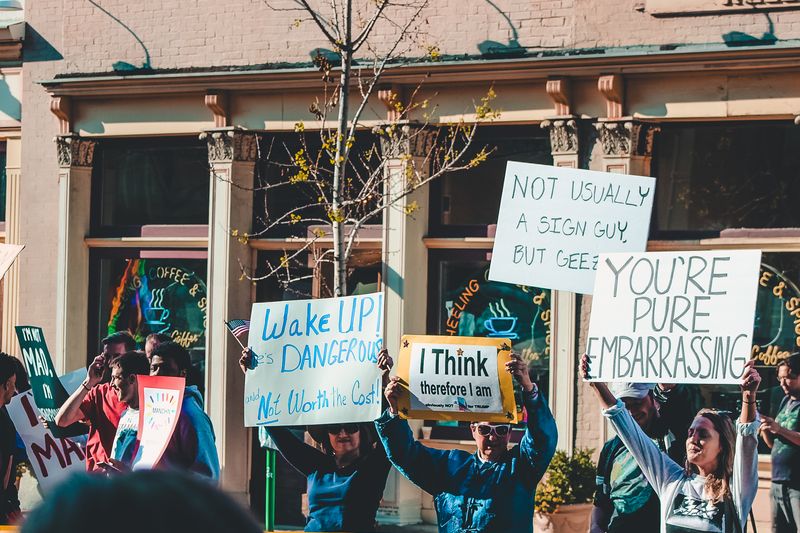- New Jersey Senator Bob Menendez and Wife Face Additional Charge of Conspiring to Act as Foreign Agents of Egypt
- You might want to read !
New Jersey Senator Bob Menendez and Wife Face Additional Charge of Conspiring to Act as Foreign Agents of Egypt
The Allegations and Legal Proceedings
Federal prosecutors have recently announced an additional charge against New Jersey Democratic Senator Bob Menendez and his wife, Nadine Arslanian Menendez. The superseding indictment accuses the couple of conspiring to have Senator Menendez act as a foreign agent of Egypt. Menendez and his wife were previously indicted on corruption-related charges, accused of accepting bribes in exchange for the senator’s political influence. The new charge adds a new dimension to the case, alleging that a sitting U.S. senator was working on behalf of another country.
The alleged bribes included cash, gold, home mortgage payments, compensation for a “low-or-no-show job,” and a luxury vehicle. However, Senator Menendez staunchly denies the charges, emphasizing his loyalty to the United States and his long-standing commitment to human rights and democracy. He has vowed to present a robust defense and prove his innocence.
Both Menendez and his wife have pleaded not guilty, and a trial date has been set for May. If convicted on all charges, the couple could face up to 50 years in prison, with the new charge carrying a maximum sentence of five years.
The Alleged Scheme and Connections to Egypt
According to prosecutors, the alleged scheme involved Senator Menendez meeting with an Egyptian intelligence official at his Senate office in 2019. During the meeting, they discussed a human rights issue concerning Egypt and an American citizen injured in an airstrike in 2015. Members of Congress believed that Egypt had not adequately compensated the injured American, leading them to object to providing military aid to Egypt.
Subsequently, prosecutors claim that Menendez searched for information regarding the injured American and his claim. The Egyptian official reportedly texted a New Jersey businessman named Wael Hana, stating that if Menendez helped resolve the issue, he would “sit very comfortably.” Hana replied, “orders, consider it done.”
In March 2020, Nadine Menendez allegedly texted one of the Egyptian officials, offering her assistance and assuring them that she could make things happen. Soon after, she arranged a meeting between the Egyptian official and her husband to discuss negotiations over a dam Ethiopia was constructing on the Nile River. The construction of this dam was a significant foreign policy concern for Egypt.
Within a month, Menendez wrote a letter to the U.S. Treasury secretary and secretary of State urging increased engagement on the negotiations surrounding the dam, expressing concern about the stalled talks. Prosecutors allege that Menendez was aware of the foreign agent law and knowingly acted on behalf of Egypt without registering as an agent.
Philosophical Discussion: The Ethical Dilemma of Political Corruption
This case raises significant ethical concerns surrounding political corruption and the abuse of power by elected officials. Corruption undermines the very fabric of democracy and erodes public trust in the political process. When representatives and politicians prioritize personal gain over the interests of their constituents, it is an affront to the principles of justice and fairness that democracy is meant to safeguard.
Political corruption not only harms the individuals directly involved but also has broader consequences for society at large. Corruption allows wealthy interests to exert undue influence on policymaking, often at the expense of the less privileged. It perpetuates inequality, undermines public welfare, and erodes the legitimacy of democratic institutions. Therefore, cases like that of Senator Menendez and his wife should be taken seriously and thoroughly investigated to preserve the integrity of our political system.
Editorial: The Importance of Accountability and Transparency
Political corruption cases such as this serve as a crucial reminder of the importance of accountability and transparency within our government. It is imperative that individuals entrusted with public office uphold the highest standards of ethical conduct and prioritize the interests of their constituents above personal gain.
While every individual is presumed innocent until proven guilty, the seriousness of the charges against Senator Menendez and his wife raises questions about their fitness to hold office. If convicted, it would be a breach of the public trust, and Senator Menendez should seriously consider resigning from his position in the Senate.
Moreover, this case highlights the need for stronger regulations and oversight to prevent and detect political corruption. Stricter campaign finance laws, stricter anti-corruption measures, and greater transparency in lobbying activities are all necessary to safeguard the integrity of our democracy.
Advice: Strengthening Democratic Institutions
To combat political corruption effectively, we must strengthen our democratic institutions and encourage a culture of integrity and accountability among our elected officials. This can be achieved through various means:
1. Political Ethics Education:
Implementing ethics training programs for elected officials can help instill a sense of responsibility and uphold high moral standards. By educating politicians on the ethical dimensions of their role, we can encourage a culture of integrity in public service.
2. Whistleblower Protections:
Enhancing legal protections for whistleblowers within the political arena can empower individuals to come forward with evidence of corruption without fearing retaliation. Robust whistleblower laws will enable the exposure of wrongdoing and encourage the accountability of those in power.
3. Transparency and Disclosure:
Demands for greater transparency in campaign financing and lobbying activities are essential to shed light on potential conflicts of interest and undue influence. Requiring politicians to disclose their financial interests and affiliations can help prevent the misappropriation of political power.
4. Independent Oversight Bodies:
Establishing independent oversight bodies with the authority to investigate allegations of political corruption is crucial in ensuring impartiality and fair scrutiny. These bodies should have sufficient resources and autonomy to hold elected officials accountable for their actions.
5. Strengthening Campaign Finance Laws:
Reform campaign finance laws to reduce the influence of big money in politics and level the playing field for all candidates. Implementing stricter limits on donations and promoting public financing options can help reduce the potential for corruption.
By implementing these measures and demanding accountability from our elected representatives, we can work towards a more transparent, ethical, and resilient political system. It is through a collective commitment to these principles that we can restore public trust and uphold the ideals of democracy.

<< photo by cottonbro studio >>
The image is for illustrative purposes only and does not depict the actual situation.
You might want to read !
- Influence for Hire: The Latest Charges Against Sen. Bob Menendez
- LAPD Reinforces Security Measures in Response to Warning of ‘Global Day of Jihad’
- A Deep Dive into the Disturbing Ideologies of Christopher Columbus: An Analysis of an ‘Unhinged’ Letter
- An In-Depth Analysis: Unraveling the Legal Battle of Sen. Bob Menendez and His Wife
- The Charges Against Sen. Bob Menendez: A Closer Look at the Bribery Inquiry
- Editorial Exploration: Examining the Broncos’ Decision to Part Ways with Pass-Rusher Frank Clark
Title: Broncos Shake Up Defense: Frank Clark to Depart in Surprising Move
- Exploring Patrick Mahomes’ Historic Win Streak: Chiefs Triumph over Broncos Yet Again




